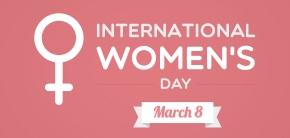Every year the global community celebrates International Women’s Day (IWD) on 8 March. In Australia, the National Committee for UN Women hosts International Women’s Day events across the country, celebrating important milestones in gender equality and looking to the future with new hopes and plans.
In 2015, the global campaign, Beijing +20, is being commemorated. The campaign has made important strides towards ensuring the rights and freedoms of women and girls all over the world since 1995, when the momentous Beijing Platform for Action was signed by 189 countries. It also puts forward important goals for the future.
In Australia this year, we are fortunate to be celebrating the women who are lighting the way towards tackling domestic violence and securing gender equality.
Ahead of IWD this Sunday, the first royal commission into family violence has begun in Victoria this week, with head commissioner Marcia Neave speaking of the necessity of positively changing the part of Australian culture that has thus far permitted violence against women, which she says is a “hidden problem”. The commission has made a call for written submissions from frontline workers in the courts, police and the child protection, health and domestic violence sectors about how systems could be altered to keep women safe.
This year, statistics from Domestic Violence Victoria have shown that as many as 14 women have died due to family violence in Australia in 2015. This number is well above last year’s national average of one death per week.
The declaration of Rosie Batty as Australian of the Year spoke volumes about Australia’s commitment to bring domestic violence out of the dark corner and into full public view. Ms Batty became a campaigner against domestic violence after her son, Luke, was beaten to death by his father on a cricket oval in Melbourne last year.
Ms Batty featured on Q&A on Monday night last week, saying that the procedure of processing domestic violence claims needs to change. She spoke directly to the Australian police and law bodies, saying a “coordinated approach” between police and the courts was important in improving the reporting of domestic violence so that women no longer have to fear the repercussions of speaking out.
However, the duty to end domestic violence extends further than just to officials. Ms Neave stated that each Australian could play their part, however small. She made an appeal to the public to what do they can to put a stop to domestic violence, urging everyone “to be responsible and involved in stopping this terrible scourge.”
Read more at The Guardian.
To help celebrate International Women’s Day in your city or to take part in progressing women’s equality, visit UN Women online.
What do you think? Do you feel Australia does enough to combat domestic violence? What else can Australians do to help keep women safe?

